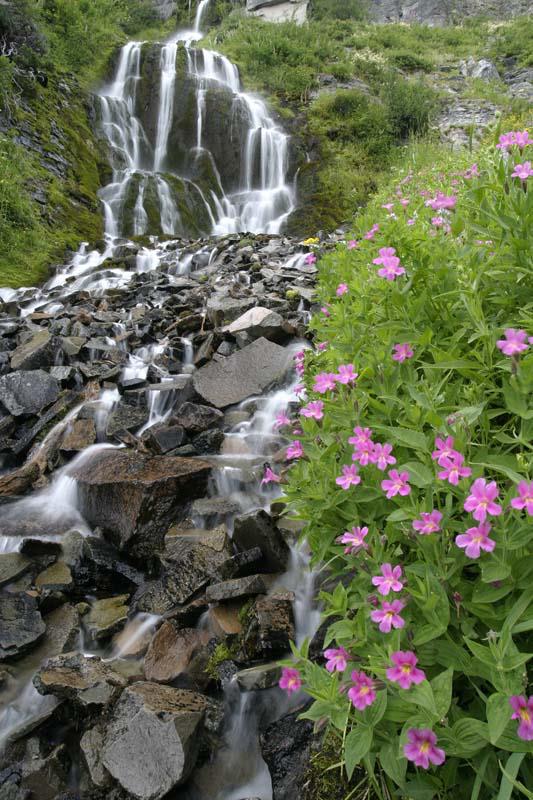Nature Notes by Dr. Frank Lang
“We’ll never know the worth of water till the well go dry.” This 18th century Scottish proverb has been used and reused, much like water, ever since then. Water is a remarkable substance.
Water is a chemical compound of two hydrogen atoms bound to oxygen; H20, as all but the dullest know. It is among the most common and essential substances on planet Earth. Except for the odd meteorite, what we have is all we have.
Water can be a solid, like ice or snows a liquid, like a lake or river, or a gas, like steam. Water has near magic properties.
It is a liquid over most of earth’s climates. It boils at 212 degrees F. and at 32 degrees F. Living organisms – even ice worms – require water as a liquid.
As a liquid, water changes temperatures very slowly. It can store a lot of heat without much change in temperature. Lakes and oceans usually do not change temperature faster than their living organisms can tolerate.
|
|
It takes a lot of heat to change liquid water to a gas. As heat is taken up in evaporation of water, the surface cools. Evaporating sweat makes you and your skin feel cooler, or evaporating saliva, if you are a dog.
Liquid water, as a nearly universal solvent, is a mixed blessing. It moves dissolved nutrients and wastes through tissues of the body. The same property allows it to be easily polluted by soluble wastes.
Water molecules’ ability to cling together allows a place for water striders to stride. That, and its ability to cling to surfaces, allows tall trees like redwoods to pull life-sustaining water molecules 300 feet or more above the ground.
Water expands on freezing, becomes less dense than water as a liquid. Frozen water floats. Ice floats. Lakes freeze from the top down. If ice didn’t float, lakes might freeze from the bottom up, freeze up solid, thus destroying aquatic life.
Somehow humans have the idea that water is in unending supply. It is, but not always when or where we want it. At any given place there might be unexpected drought or deluge. Sometime drought or deluge might be protracted.
We dam, drill, channel and pipe water from all over to support our lives and styles. Are the consequences worth it? Of all the water on planet Earth, three percent is fresh water and only 0.003 percent is readily available. We are using that up as fast as we can. After we use it, we return it polluted with our wastes, diseases, and the chemical discharge of our industries. Our .003 percent is shrinking fast, polluted and made unusable by our activities.
Medford and Milwaukee? Water contaminated by Cryptosporidium. Wildland waters contaminated by Giardia. Ground water contaminated by leaking gasoline tanks. What is a leading cause of water pollution worldwide? Agriculture. Sediments from soil erosion, pesticides, and excessive nutrients all contribute. Obtaining good, clean drinking water is becoming more and more expensive in energy and money. How much longer till our fancy technological well goes dry? Sooner than we think, perhaps.
— Dr. Frank Lang


